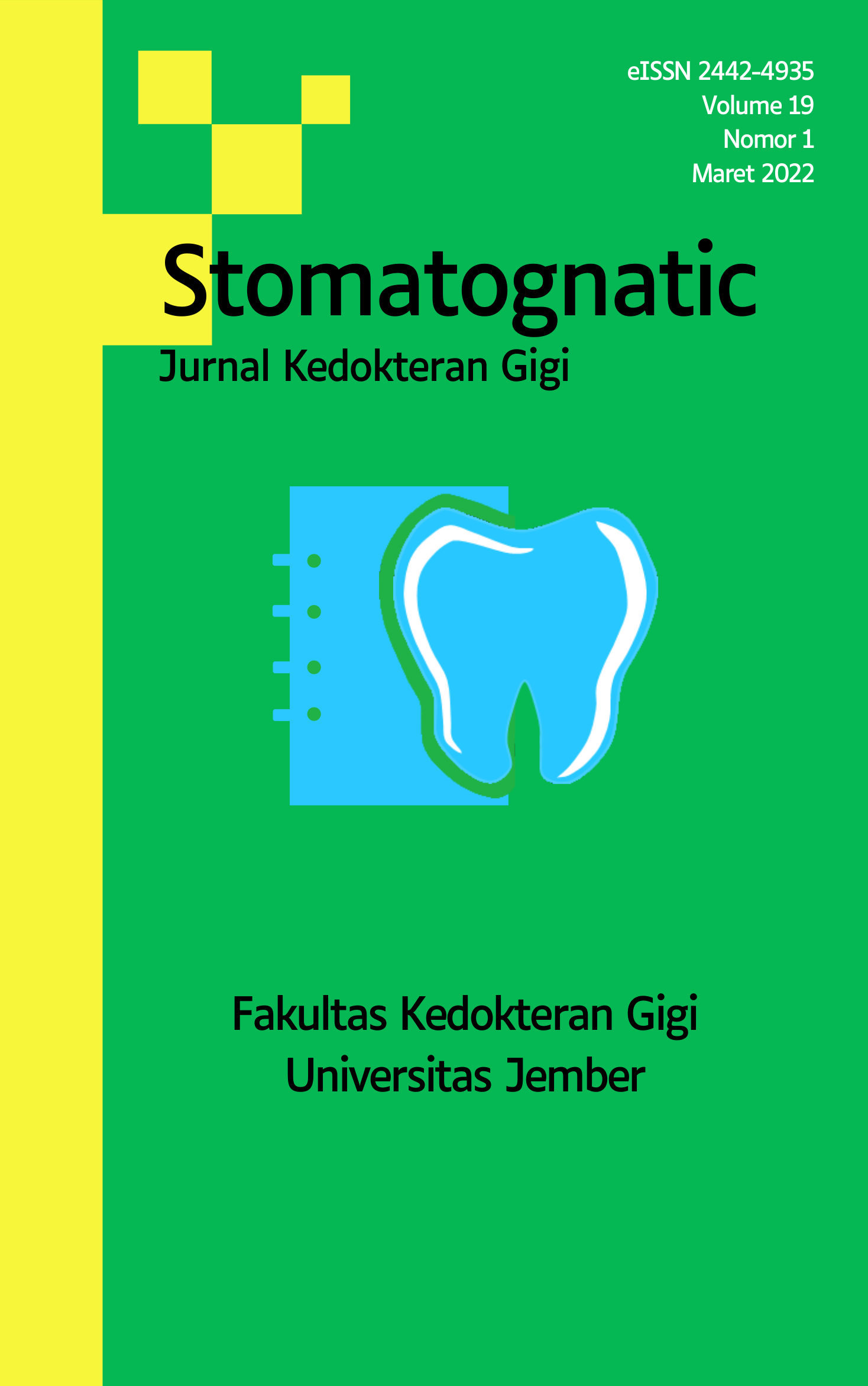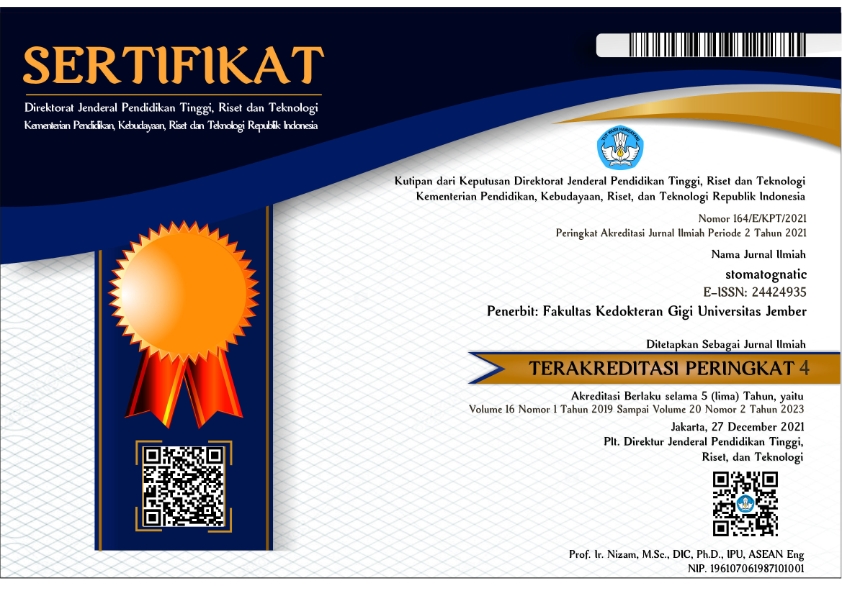Profil Kesehatan Gigi dan Mulut Berdasarkan Standar WHO pada Masyarakat Kecamatan Kaliwates Kabupaten Jember
Abstract
Indonesia's oral and dental health problems are quite high, including in Kaliwates Subdistrict. The newest method for looking at oral and dental health conditions operates WHO standard dental and oral health forms. Oral health data can be used as preventive, curative, and rehabilitative measures. The aim of this study was to determine oral health profile based on WHO standards in Kaliwates Subdistrict, Jember Regency. The research conducted was a descriptive observational with the cross-sectional approach by multiple clusters random sampling. The respondents were 97 people who stayed in Kaliwates and were 35-44 years old. Examination based on WHO standard dental and oral health form included dentition status, periodontal status, loss of attachment, email fluorosis, dental erosion, oral mucosal lesion, intervention urgency, and denture status. Data was processed based on each variable using the SPSS frequency distribution and presented in the table. Oral and dental health features were crown caries (99%) and roots (8.2%), restoration with caries (13.4%) and without caries (14.4%), extracted due to dental caries (38.1%) and other causes (3.1%), fixed prosthesis (2.1%), unerupted tooth (67%), fissure sealant (0%), gingival bleeding (72.2%), pocket 4- 5 mm (55.7%) and ≥ 6mm (1%), attachment loss of 0-3 mm (46.4%) and 4-5 mm (53.6%), very mild fluorosis (1%), enamel erosion (16, 5%) and dentin (3.1%), oral mucosal lesions ie other lesions (2.1%), need for non-urgency treatment (95.9%), and removable dentures (3.1%). Oral health profile based on WHO Standards in Community of Kaliwates Subdistrict showed some cases of oral disease that wasn’t need urgency treatment.








